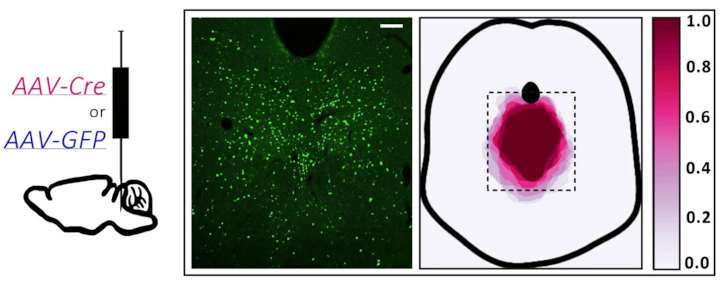The molecule STAT3 plays an important role in the serotonergic system as a mediator for controlling emotion, new research1 from Medical University of Vienna researchers indicates. The finding points to a mechanism linking the immune system, serotonin transmission and mood disorders like depression.
Previous research indicates that inflammatory processes play a key role in some psychiatric disorders. Of particular interest is the interleukin 6/STAT3 signal transduction pathway, associated with depression2, schizophrenia3, and bipolar disorder.
It was found that STAT3 is involved in nervous system functions that are important for controlling behavior in physiological and pathological situations. In an earlier study, we had managed to show that STAT3 also regulates the expression of the serotonin transporter gene,
said Dr. Daniela Pollak, who led the study.
STAT3 Signalling Pathway
The Signal transducer and activator of transcription 3 (STAT3) signal transduction pathway is activated in response to a series of stimuli, including both those that can and that cannot trigger an immune response. The molecule is found in the neurons that synthesize dopamine in the midbrain.
Changes in the transmission of information from one neuron to another using serotonin as a messenger substance correlate closely with pathological changes in depression or other mood disorders. But the interaction between the STAT3 signal transduction pathway and the neuronal information flow in the brain and its importance in regulating emotional behaviour has not yet been explored.
So the Medical University of Vienna researchers decided to study the significance of the STAT3 signal transduction pathway in the serotonergic system of the midbrain, an emotional regulation center. They used targeted inhibition of STAT3 in laboratory mice.
Where STAT3 was selectively absent from the serotonergic system of the midbrain, the mice displayed reduced, negative emotional reactivity in their behavior and a diminished response to the effects of amphetamine in the brain. These effects could be detected in mice with reduced STAT3 expression both in a genetic and in a viral model, so that it was possible to rule out developmental changes and to show that an acute manipulation of STAT3 in the adult organism impacts on emotional behavior,
Pollak explained.
Dorsal Raphe Neuronal Excitability
In the mice who lacked STAT3, there was also found to be a change in the neuronal activity of serotonergic cells of the midbrain. Changes in molecular networks that are significant in neuropsychiatric illnesses were also found on the level of gene expression.
The results of our study indicate that STAT3 plays an important role as a molecular mediator in the serotonergic system for controlling emotional reactivity, thereby establishing a mechanistic link between the immune system, serotonergic transmission and affective disorders,
Pollak said.
The work was supported by a grant from the Austrian Science Fund.
- Reisinger, S.N., Sideromenos, S., Horvath, O. et al. STAT3 in the dorsal raphe gates behavioural reactivity and regulates gene networks associated with psychopathology. Mol Psychiatry (2020). doi.org/10.1038/s41380-020-00904-2 ↩︎
- Kong, E., Sucic, S., Monje, F. et al. STAT3 controls IL6-dependent regulation of serotonin transporter function and depression-like behavior. Sci Rep 5, 9009 (2015) ↩︎
- Subbanna, M., Shivakumar, V., Venugopal, D., Narayanaswamy, J.C., Berk, M., Varambally, S., Venkatasubramanian, G. and Debnath, M. (2020), Impact of antipsychotic medication on IL‐6/STAT3signaling axis in peripheral blood mononuclear cells of drug‐naive schizophrenia patients. Psychiatry Clin. Neurosci., 74: 64-69. doi:10.1111/pcn.12938
https://onlinelibrary.wiley.com/doi/abs/10.1111/pcn.12938 ↩︎
Last Updated on September 12, 2023
